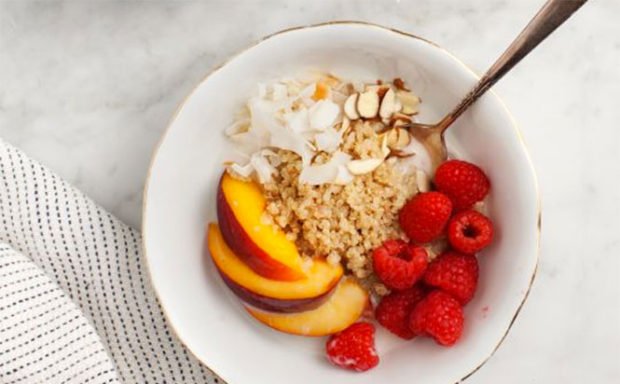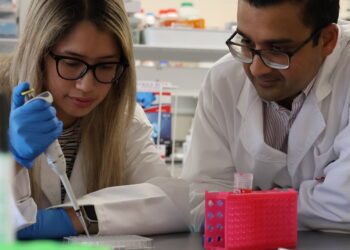New research has found women with polycystic ovarian syndrome (PCOS) are putting their health at risk by following the wrong diet track.
What is PCOS?
PCOS is the most common hormonal disorder among pre-menopausal women, affecting 12 or 21 percent of Australian women of childbearing age.
Based on new research from the journal Nutrition & Dietetics, the study found that many women with PCOS are skimping on carbohydrates and overeating fat to manage the condition. According to the study, women with PCOS were getting more of their daily kilojoules from saturated fat (around 150Kj / 36 calories more) and less from carbohydrates (around 450kJ / 108 calories less) compared to those without PCOS while the caloric intake was similar across both groups.
 image via pinterest
image via pinterest
According to spokesperson Margaret Hays, “This means women with PCOS are eating the equivalent of a teaspoon more butter a day, and missing out on a thick slice of grainy bread or a large apple.”
Research further showed that 61 percent of the women with PCOS were insulin resistant, compared to the 39 percent of control patients.
“An important message for these women is to reduce saturated fats, found in foods like butter, cream, coconut oil, fatty meat and many biscuits, cakes and pastries, and to choose lower glycaemic index foods, such as wholegrain breads, legumes and oats,” said Ms Hays.
She said women with PCOS are more likely to struggle with their weight, but healthy eating will help and losing a relatively small amount of weight (5-10%) can improve many of the symptoms of PCOS.
Nutrition tips for women with PCOS:
– Choose quality grain (cereal) foods, which are higher in fibre and have a low GI, such as wholegrain bread, oats, barley and cracked wheat.
– Limit foods containing saturated fat, such as butter, cream, cooking margarine, coconut and palm oil. Instead, replace these with foods that contain predominantly polyunsaturated and monounsaturated fats such as oils, spreads, nut butters/pastes and avocado.
– Prioritise vegetables in your day, aiming to eat different types and colours. Fill half your dinner plate with vegetables, and cook at home more often, as research shows this can ‘up’ your vegetable intake by more than half a serve a day.
– Choose healthy snacks such as fruit, a small handful of unsalted nuts, carrot, celery or zucchini ‘sticks’ with dips like hummus or salsa, a slice of wholegrain fruit bread, or a tub of yoghurt, instead of biscuits, cakes, pastries or potato crisps.



















